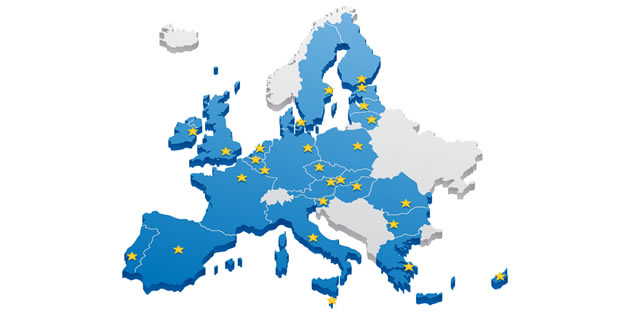The Euro to Norwegian Krone (EUR/NOK) exchange rate and Euro to Swedish Krona (EUR/SEK) exchange rate both weakened on Wednesday as worries over a Greek default and a possible increase by the European Central Bank to speed up the pace of its bond-buying stimulus programme weighed heavily on the single currency.
The Euro to Norwegian Krone (EUR/NOK) exchange rate fell to a session low of 8.3697
The Norwegian Krone received support against the Euro after economic data showed that the Norwegian economy expanded more than forecast in the first quarter of 2015. Statistics Norway released a report, which showed that mainland GDP grew by 0.5%, an improvement on the preceding quarter’s revised figure of 0.4% and beat economist expectations for a drop to 0.3%.
The overall total GDP however grew by 0.2%, a sharp dip from the 0.9% expansion rate seen in the final quarter of 2014. The figure did, however, beat economist forecasts for 0.1%. The data also showed that Norway’s total imports climbed by 2.8% to reverse the 3.6% decline seen in the previous quarter.
After the GDP data, the Norwegian Krone strengthened against the Euro, which fell to NOK8.36.
Greece Default Worries Rise
Concerns were high that Greece will default on a repayment to the International Monetary Fund (IMF) due on June 5 as signs of a deal between Athens and its creditor’s remains remote. Worries were increased after credit ratings agency Moody’s said that the rise of Greece freezing bank accounts and imposing restrictions on the movement of money has increased sharply.
‘The outlook for the Greek banking system is negative, primarily reflecting the acute deterioration in Greek bank’s funding and liquidity. These pressures are unlikely to ease over the next 12-18 months and there is a high likelihood of an imposition of capital controls and a deposit freeze,’ said Moody’s.
The Euro to Swedish Krona (EUR/SEK) exchange rate fell to a session low of 9.2762
The Swedish Krona advanced against the Euro despite the release of data, which showed that the nation’s unemployment rate increased more-than-expected in April. According to Statistics Sweden, the unadjusted jobless rate rose to 8.3% in April from a three-month low of 8% in March.
The Euro was also weakened by comments made by European Central Bank (ECB) policymaker Benoit Coeure who said that the central bank was going to increase the pace of its stimulus programme.
The Euro could regain some ground on Thursday if the latest Eurozone PMI reports come in positively. Also of interest will be the publication of the ECB’s May policy meeting minutes.



